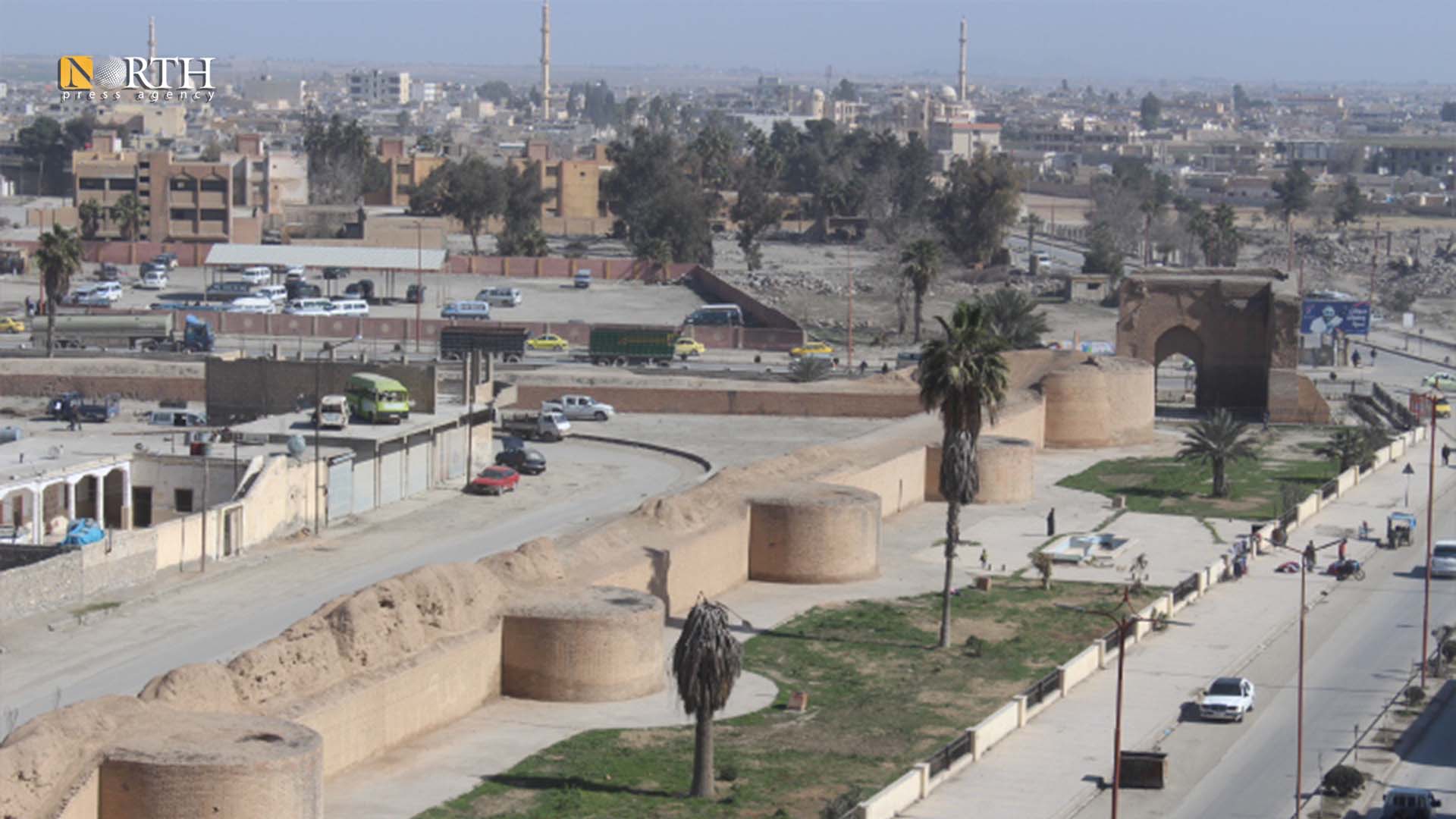RAQQA, Syria (North Press) – The archaeological site of tuttul (Tell Bi’a), 5 km northeast of Raqqa, northern Syria, is subjected to numerous violations including neglect and illegal excavations.
Tuttul is a city located on a high hill with fertile plains on its edges. It was built in the fourth millennium BC, during the Uruk civilization, according to archaeological findings.
The strategically located archaeological Tuttul, is considered one of the oldest archaeological sites in Raqqa which lies five kilometers to the north of the Euphrates.
Cultural diversity
In a previous interview with North Press, the historian Muhammad Ezzo said that Tuttul includes a cultural diversity of Akkadian, Assyrian and Mitanni civilizations, as it reveals the diversity of ethnicities and nationalities of the region’s population.
Despite the connection of the city of Raqqa and the majority of its monuments to the Abbasid era when it became the capital of the Abbasid state during the reign of Caliph Harun al-Rashid, the historical value of the city of Tuttul is no less important than the historical status of Raqqa al-Rashid.
Among the archaeological sites in Raqqa are the Archaeological Wall, Qasr al-Banat, and Bab Baghdad, which date back to the Abbasid era, the Citadel of Ja’bar in the city of Tabqa, 50 km west of Raqqa, and the ruins of al-Rusafa south of the town of al-Mansurah, 30 km west of Raqqa.
The Archaeological Museum of Raqqa is a two-storey building that used to be called the Saray Building in the past, and it contained 7,000 artifacts in addition to more than 3,000 pieces found inside the archaeological sites.
The historical value of Raqqa increased with the excavations of archeology in Tuttul in the 1980s, and the discoveries of archaeological findings and architectural remains, the oldest of which date back to the Uruk period and up to the Zinkid era, including temples and palaces.
Excavation works
Currently, there are clear traces of digging on the hill, and most of the parties or people who carried out these excavations have not been identified, but the largest proportion of the digging was for the Islamic State (ISIS), according to Abdulghafour Khalaf, member of the Culture and Antiquities Committee of the Raqqa Civil Council.
Videos showed ISIS members destroying findings and artifacts, during the period of ISIS control over large areas in Iraq and Syria.
Most of the archaeological discoveries in Raqqa that were excavated date back to the Abbasid era and Byzantine antiquities which were preserved in the Raqqa City Museum, which was looted after opposition groups took control of the city in 2013.
The city of Raqqa contains more than 500 officially registered archaeological sites, including natural hills on which archaeological sites and buildings were built, or sites submerged in dirt or water, and most of these sites witnessed looting and illegal excavations after 2011.
ISIS dug several tunnels around the archaeological site, which were intended to fortify the area after the intensification of the fighting between it and the SDF.
Khalaf pointed out that there are plans for the Culture and Antiquities Committee to rehabilitate the archaeological sites, including the archaeological site of Tuttul.
During the last period, the Culture and Antiquities Committee worked on rehabilitating several archaeological sites, including the Archaeological Wall of Raqqa, and the Citadel of Ja’bar near the city of Tabqa, and the committee removed traces of destruction from archaeological sites and restored the Museum of Raqqa.
IDPs fear deportation
Displaced people living in the site are afraid of deportation plans, according to what they told North Press, and they added that they are fed up with displacement, so that today they will be deported from a site where they lived for nearly four years.
Abdulljabbar Khalidi, a displaced person from villages in the eastern countryside of Homs, said that the displaced chose the hill site and built their tents over it, because of its height, fearing the tents from the rain in the winter season.
Khalidi does not know precisely where the camp residents will be heading in the event they are deported, but he hopes to wait before a decision that increases the suffering of the displaced who found in Raqqa a safe place for them.
“Raqqa contains many random camps, and it is the duty of the officials to mitigate the damage of displacement by providing relief and humanitarian aid,” he added.
Procedures for restoration
During the last period, the Culture and Antiquities Committee formed the Tourist Control, which aimed to stop the abuse of archaeological sites after monitoring many of them in several sites.
According to a member of the Culture and Antiquities Committee of Raqqa Civil Council, the committee has worked continuously and intensively to stop these abuses and protect archaeological sites.
Khalaf pointed out that there are plans to deport the displaced from the archaeological site, in coordination between the Culture and Antiquities Committee, and the Social Affairs and Labor Committee of Raqqa Civil Council, which is concerned with relief and displaced matters.
According Khalaf the committee will rehabilitate the site in accordance to its cultural and historical importance, by removing traces of abuse and cleaning the site in an appropriate manner.

